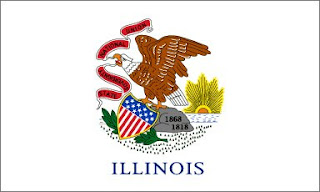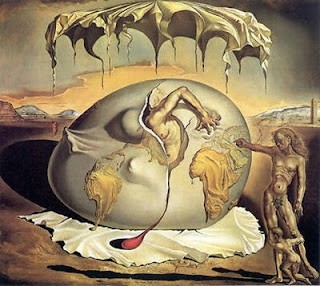Diversifying your supply of energy (oil) is always a smart move, and producers who have formerly not heeded the desires of their customers usually end up learning a difficult lesson.
In this case, the gulf, with its implicit policy of targeting price and letting the quantity of oil adjust to that price (and accumulating overplus profits in the process) misjudged the patience of its largest customer.
Service providers (and other businesses further down the ecosystem) for petrodollars are going to feel the pain as well.
The Downturn Hits Dubai
By Stanley Reed
With plummeting oil prices causing the Persian Gulf economy to shrivel, Dubai's push to become a global financial hub is in jeopardy.
For a year or so, the movers and shakers of the small but oil-rich United Arab Emirates have watched the unfolding of the credit crisis in the West with a mixture of dismay and denial. It won't happen here, was their view. And for a long time it didn't. But now it is. The price of oil, the lifeblood of the Persian Gulf economy, has fallen more than 60 percent since its mid-July peak. Real estate, the other mainstay, especially in oil-poor Dubai, has been quick to follow. An industry source in Dubai estimates that prices, which rose about 14.4 percent in the first eight months of this year, have suddenly dropped by 20 percent to 30 percent, with some developments seeing 50 percent declines.
With prices for villas and apartments falling and sales grinding to a halt, big developers such as Nakheel, which is building the iconic palm frond-shaped projects on fill dredged from the sea bottom, are halting construction and laying off staff. Jobs, though on a lesser scale, also are being lost at investment banks such as Morgan Stanley and Goldman Sachs, which have seen the Gulf as one place business was not drying up. They are now trimming staff, to the alarm of the local authorities, who have staked their future on the Gulf's becoming a global financial center.
A chill wind is blowing through the Gulf. Credit has dried up; stock exchanges have crashed; and the region's once-vaunted Sovereign Wealth Funds, set up to save for a future when oil reserves are exhausted, have instead sustained huge losses, potentially in the hundreds of billions of dollars.
War Council
The diciest situation is unfolding in the UAE, where the sheikhs of Dubai -- the second-largest of seven emirates -- are at last realizing that they need to call time on a decade-long, debt-fueled building and acquisition spree. That admission came most explicitly in the recent naming by the ruler of Dubai, Mohammed bin Rashid al Maktoum, of what looks like a war council composed of nine of the top executives of what is known as Dubai Inc. That's the network of companies such as Dubai World, Emirates Airline, and Dubai Holding that are controlled by the ruling family and the government. "Yes, we recognize the new reality," said the Council's Chairman Mohamed Alabbar on Nov. 24. "Make no mistake."
It has long been assumed that if Dubai got into trouble, it would be bailed out by its neighbor, Abu Dhabi, one of the great oil powers and the deep pockets behind the UAE. Already there are signs of a rescue process beginning. It's being handled at the UAE federal level, with Abu Dhabi likely providing whatever funding is needed. Trading in the shares of two publicly traded but partly state-owned mortgage finance companies, Tamweel and Amlak Finance, was suspended on Nov. 20. The two companies, which account for about 50 percent of the mortgage market, with $5.5 billion (€4.3 billion) in assets, are to be merged into a little known federal government entity called the Real Estate Bank of the UAE.
In addition, the UAE has guaranteed all bank deposits for three years and has earmarked about $33 billion for support of the banking system. Nominally, the capital is coming from the central bank and the UAE Ministry of Finance, but, as one analyst put it, "All money in the UAE comes from Abu Dhabi."

















